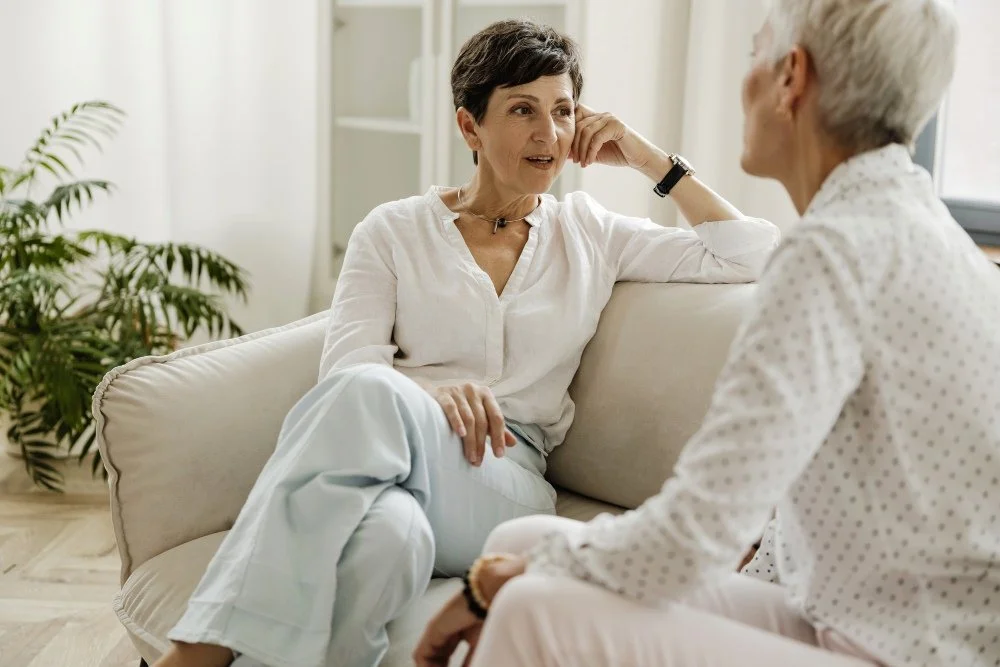Emotional well-being is at the heart of a meaningful life. It allows people to handle challenges with resilience, to experience deeper joy, and to sustain relationships with trust and warmth. When emotional well-being falters, however, the effects can be felt everywhere—from family interactions to professional life. For many individuals and couples, the difficulties that arise in relationships are some of the greatest influences on emotional health. A lack of connection, unresolved arguments, or patterns of miscommunication can create loneliness and stress. Through Relationship Therapy Austin with Marsha Lowes Psychotherapy, clients find a supportive and professional space where these difficulties are addressed with care, respect, and insight.
The Importance of a Strong Emotional Foundation
Emotions shape how we see ourselves and how we connect with others. When relationships provide security and mutual understanding, they strengthen emotional well-being. Partners feel safe, valued, and encouraged to grow. But when that foundation is shaken by conflict, misunderstandings, or unmet needs, emotional stability can quickly weaken. Relationship Therapy Austin focuses on restoring that foundation so couples can regain balance in their partnership and within themselves. By exploring both the individual and the relationship dynamic, therapy ensures that emotional health is nurtured at every level.
How Relationships Influence Overall Health
The quality of relationships has a direct influence on mental, physical, and social health. Stressful or disconnected partnerships often create ripple effects such as anxiety, fatigue, or difficulty focusing at work. Conversely, emotionally fulfilling relationships support physical well-being, increase resilience to stress, and provide a sense of belonging. Through the guidance of Relationship Therapy Austin, couples learn how to identify unhealthy cycles that contribute to stress and replace them with practices that promote emotional balance and vitality. The result is a healthier relationship and a healthier life overall.
Creating Space for Healing Conversations
One of the most valuable aspects of therapy is the creation of a safe, nonjudgmental space where conversations can unfold freely. Many couples find themselves trapped in cycles of arguments where the same topics are revisited without resolution. Others may avoid conversations altogether, fearing that conflict will worsen if addressed. In Relationship Therapy Austin, Marsha Lowes Psychotherapy facilitates conversations in ways that encourage openness and honesty. Partners are guided to speak their truth, to listen without defensiveness, and to create mutual understanding. Over time, this safe space builds trust and allows meaningful dialogue to replace recurring conflict.

The Role of Trust in Emotional Healing
Trust is not static; it evolves and requires nurturing throughout a relationship. Moments of disappointment or unmet expectations can weaken trust, making it harder to lean on one another during challenges. Relationship Therapy Austin provides tools to repair and rebuild trust through consistent and empathetic communication. By learning how to recognize vulnerabilities and approach them with respect, partners create a foundation where trust can grow stronger than before. Restoring this essential element not only heals the relationship but also strengthens each partner’s individual sense of emotional safety.
The Power of Communication to Transform Relationships
Communication is often described as the lifeline of relationships. It is not simply about exchanging words but about fostering connection through tone, intention, and emotional presence. When partners struggle to communicate effectively, emotions can feel dismissed or misunderstood, creating distance over time. Relationship Therapy Austin emphasizes techniques that transform the way partners communicate. Instead of reacting defensively or shutting down, couples learn how to respond thoughtfully and empathetically. These new approaches create a more harmonious environment where both partners feel validated and supported.
Supporting Individual Growth Within Partnership
Relationships flourish when both individuals feel free to grow and evolve. At times, however, personal struggles such as stress, unresolved trauma, or ingrained habits can hinder relationship harmony. Therapy provides a unique opportunity for individuals to explore their personal growth while remaining connected to their partner. In sessions with Relationship Therapy Austin, Marsha Lowes Psychotherapy encourages clients to recognize personal patterns and make healthier choices. This empowerment allows individuals to bring greater self-awareness into their relationship, creating stronger bonds while nurturing their own emotional resilience.
Healing Emotional Wounds Together
Many couples carry emotional wounds from past experiences—whether from within the relationship itself or from earlier life events. These wounds can silently influence present interactions, leading to misunderstandings and conflict. By engaging in Relationship Therapy Austin, couples are guided to uncover and address these deeper issues in a compassionate and supportive way. Healing emotional wounds together strengthens empathy, increases closeness, and creates a sense of unity. Instead of facing struggles alone, partners learn to become allies in each other’s healing journey.
Building a Lasting Connection
One of the most profound benefits of therapy is the ability to move beyond temporary solutions and instead build lasting change. Through consistent sessions, couples establish healthier patterns of interaction that endure well beyond the therapy room. Relationship Therapy Austin equips couples with strategies to handle future challenges constructively, ensuring that setbacks do not derail emotional well-being. This commitment to long-term growth strengthens the relationship and allows couples to maintain closeness even as life circumstances evolve.
Emotional Awareness as a Path to Resilience
Understanding and naming emotions is a crucial step toward resilience. When individuals can recognize their own emotional responses, they are better able to communicate them to their partner and to manage conflict productively. Therapy emphasizes emotional awareness as a pathway to healthier choices. In Relationship Therapy Austin, clients learn to identify their emotional needs and express them in ways that strengthen connection rather than creating distance. This practice leads to greater self-control, compassion, and resilience, enriching not only the relationship but also personal life outside the partnership.
A Holistic Vision for Well-Being
Emotional well-being is interconnected with every part of life. The stress carried from unresolved conflict can affect parenting, work performance, and even physical health. Conversely, a supportive and loving relationship can enhance creativity, improve problem-solving, and bring vitality to daily life. Marsha Lowes Psychotherapy takes a holistic approach, recognizing that relational health is not separate from overall well-being. Through Relationship Therapy Austin, clients learn to care for their emotions, their partnership, and their future with equal dedication. This holistic vision ensures that progress made in therapy radiates throughout all areas of life.
Moving Toward Hope, Connection, and Renewal
Every relationship experiences challenges, yet it is possible to transform those challenges into opportunities for growth. Therapy does not erase difficulties but empowers couples to approach them with new perspectives, healthier tools, and deeper compassion. With the guidance of Relationship Therapy Austin, clients move toward a renewed sense of connection and hope. Each session is a step toward emotional strength, greater intimacy, and the ability to face life together with confidence. Marsha Lowes Psychotherapy provides the insight, care, and commitment needed to help couples and individuals strengthen not only their relationship but their overall emotional well-being.
